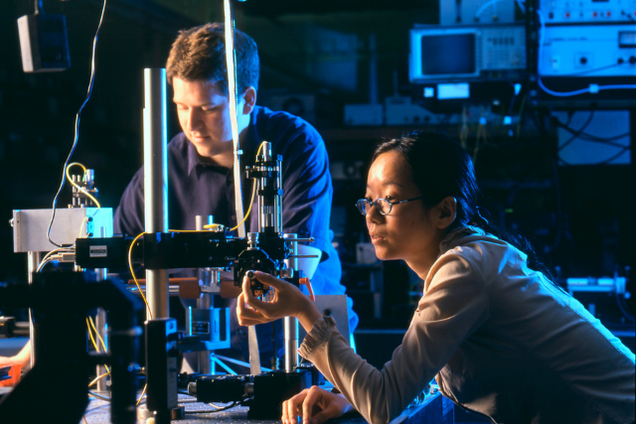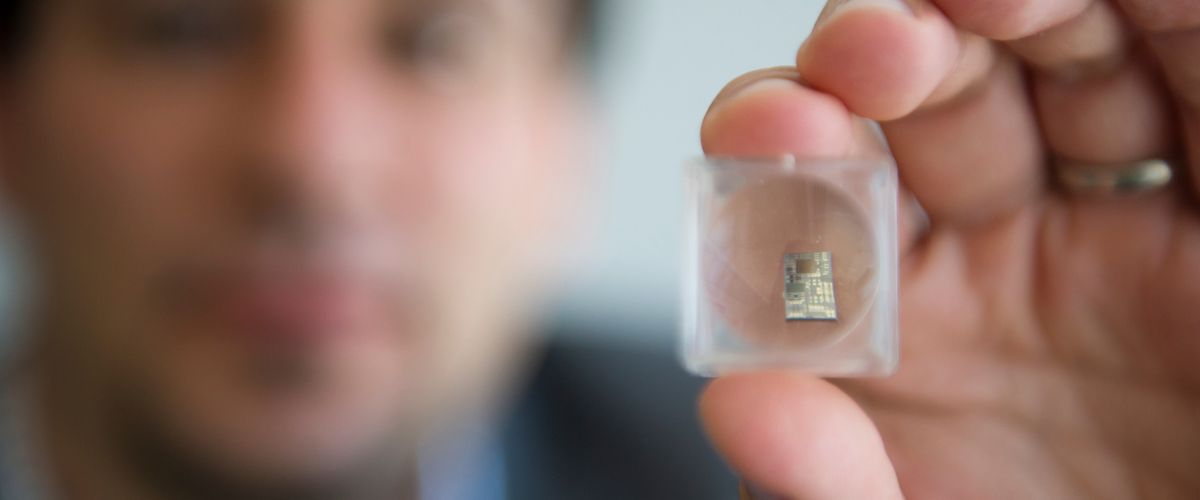Calling all innovators, entrepreneurs and impact creators!
Do you have an idea for a product or service that can have real-world impact? Are you developing a solution to a market-relevant problem within your area of expertise? If so, you’re likely looking for resources to navigate the entrepreneurial process and transform your innovation into a potential commercial opportunity.
The Ignition Awards are here to help.
Idea to Impact
 Ignition Awards (IA) support all stages of the innovation cycle from idea to impact. It is a program providing directed resources, both financial and advisory, to innovators who are committed to converting an idea/innovation into a potential product/service opportunity that will impact the way we live today and tomorrow. Ignition Awards support steps on the entrepreneurial path by focusing resources to address the early technical and business milestones that if achieved may define your idea/innovation as a viable commercial opportunity. The Ignition Award funds support:
Ignition Awards (IA) support all stages of the innovation cycle from idea to impact. It is a program providing directed resources, both financial and advisory, to innovators who are committed to converting an idea/innovation into a potential product/service opportunity that will impact the way we live today and tomorrow. Ignition Awards support steps on the entrepreneurial path by focusing resources to address the early technical and business milestones that if achieved may define your idea/innovation as a viable commercial opportunity. The Ignition Award funds support:
Technical Milestones
Demonstrating proof-of-concept using an industry-acceptable model, comparing performance of a device against industry standards, creating a prototype, running an alpha/limited beta test, etc.
Business Milestones
Defining current state of the art, assessing the competitive landscape, identifying key differentiators for your product/service, understanding the size and segments of an intended market, etc.
More Than a Funding Source
 The IA is more than a funding source. It is also a support program during which each faculty-led innovation team will have the opportunity to interact with technical and business leaders who will work with you and your team over the next year to refine technical plans and improve your ability to look at the opportunity through an “impact-potential lens”. Each awardee will have an advisory committee to provide advice and guidance to the project team along the way to achieving defined technical and business milestones.
The IA is more than a funding source. It is also a support program during which each faculty-led innovation team will have the opportunity to interact with technical and business leaders who will work with you and your team over the next year to refine technical plans and improve your ability to look at the opportunity through an “impact-potential lens”. Each awardee will have an advisory committee to provide advice and guidance to the project team along the way to achieving defined technical and business milestones.
More than anything, the Ignition Awards are designed to be an educational experience to:
- Refine and improve your plans for early development of a potential commercial product/service
- Examine the market relevance and potential impact of your proposed product/service
- Learn from industry veterans how to look at your innovation through an “impact potential lens”
- Build your network of industry contacts and other relevant stakeholders to support you throughout your entrepreneurial journey.
All BU faculty members are invited to submit a pre-proposal for this cycle of the Ignition Awards. Please see application details below. The pre-proposal is not a business plan, although you will be asked to provide information commonly found in business plans. The pre-proposal is the opportunity to “Share Your Vision” and communicate where you are on your entrepreneurial journey.
We understand that all innovations are not at the same stage of development and that the paths to commercialization will vary. You may have researched and then clearly identified a problem in a market in need of a solution, but you do not know how to build the prototype that you envision. You may have an incredibly innovative technology but are having difficulty identifying how to use it most effectively to disrupt a market. We would like you to consider applying to the Ignition Award Program no matter where you are on your entrepreneurial journey. Share Your Vision with us!
The Faculty Entrepreneurship Team is here to help. Questions? Contact Melinda Shockley at shockley@bu.edu.
Essential Information
Application and Review Process
1. Pre-proposal Application
2. Presentations and Proposal
Timeline
Please note that the pre-proposal deadline has now passed for the 2026 application cycle. We look forward to hearing from you next year!
| October 16 | Call for Pre-proposals |
| December 1 | Deadline to submit Pre-proposals* |
| January 12 | Invitation to Online Quick Pitch ($25K Track) and Request for Full Proposals ($75K Track) |
| January 20-23 | Online Quick Pitch ($25K Track only) |
| January 30 | Notice of Award ($25K Track only) |
| February 17 | Deadline to submit Full Proposals |
| February 23-27 | Presentation Week ($75K Track only) |
| March 16 | Notice of Award ($75K Track only) |
| March 23-April 3 | Kickoff meetings held with Advisory Committees |
| April 15 | Deadline to complete Pre-Award requirements |
*Pre-proposals and invited full proposals will be reviewed on a rolling basis. Early application allows for more time for comprehensive review and consideration by the panel. Late submissions will not be considered. Please note that the pre-proposal deadline for the 2026 application cycle has now passed.
Review Criteria
Pre-proposals will be reviewed using the following general criteria:
Program Status
Product/Service
Competitive Landscape and Differentiation
Project Plan and Milestones
Team
Impact
All opportunities are not at the same stage of development. Please let us know where your program stands today and the value inflection point that you would like to reach by the end of the IA period. The reviewers will be looking at the potential for your project to move along a path towards commercialization, even if the program is still rather early. The project however cannot be at the basic research stage. Please make sure to provide a clear vision of the product/service and the rationale behind why such product/service should be developed and commercialized.
Full proposals will be reviewed using similar criteria but with the expectation of more detail provided, especially with respect to technical milestones.
Eligibility Requirements
Funds are awarded only to principal investigators at BU or BMC.
Principal investigators should be passionate about the innovation and able to make the time commitments required to convert an academic idea/technology into a product/service opportunity with impact potential.
Due to time commitments required, an individual can be listed as a participant (PI or team member) on one project application only in each IA cycle. For this reason, we ask a faculty/principle investigator to submit a pre-proposal (or be listed as a team member) for the one innovation project about which he/she is most excited and willing to commit time to supporting over the project period.
Ignition Award funding is intended to assist innovators to convert ideas/technology/prototypes to market-relevant opportunities, whether that’s via a license to a third party or the formation of a company (The startup would license the technology from BU).
These funds are intended to support the development of BU licensable assets which can take the form of a patent or copyright. Your project should result in such a licensable asset and your proposal should reflect how you intend to develop that asset.*
In the case of the $75,000 award track, you must disclose your early idea/technology/invention to the Technology Development office prior to submitting the Full Proposal for the Ignition Award. The Full Proposal will be reviewed only if a disclosure is on file at the Technology Development office.
In the case of the $25,000 award track, you must disclose your early idea/technology/invention to the Technology Development office prior to the Quick Pitch Day. The opportunity to present is contingent upon a disclosure being made to the Technology Development office prior to your scheduled presentation.
If your technology was invented with other researchers from outside of BU and the intellectual property is co-owned, you may still apply for funding but you must include this information in the Innovator Questionnaire.
*Note: The creation of that “asset” might not be completed with this Ignition Award, but it is important to articulate how the creation of such an asset will be the result of your effort.
Scope and Uses of the Award
There are two classes of Ignition Awards: a) $25,000 or b) $75,000 which is distributed in two tranches, contingent on satisfactory progress towards technical and business milestones approved by the advisory committee. There is no overhead charge associated with Ignition Awards. Funds may be used in many ways to move an idea or technology closer to commercialization. The awards are intended to fund translational research to increase the commercial readiness of an idea/technology/product/service and are not a source of funding for basic or general exploratory research. For example, funds may be used to:
- Conduct proof of concept studies or build prototypes;
- Test a technology/material to obtain data on performance compared to industry standards;
- Develop a more user-friendly software interface;
- Send a material out to an independent third party for testing under industrial conditions;
- Conduct in vivo studies with a new compound;
- Hire outside expert consultants or services to validate technology.
Funds may not be used for:
- Salaries for faculty, including summer salaries;
- Basic research, including “optimization” studies to explore experimental conditions prior to the creation of a prototype/initial lead;
- Legal expenses to advance intellectual property protection;
- Publicity expenses (e.g., the development of marketing materials);
- Legal and other expenses of business formation and operation;
- Attendance at academic conferences;
- Purchase of computer or other unrelated equipment;
- Expenditures that are covered by other funding sources (grants or sponsored research)
- Business purposes such as market research, interviewing customers, hiring business consultants or students (unless approved by the advisory committee as a revised milestone).
We encourage you to match Ignition Awards with other funding. If you can use the Ignition Award funds to augment or to attract other commercialization funds, we would like you to show this in your proposals. If you are awarded funding from multiple sources for the same project, we will want to see budgets and milestones showing which parts of the project will be paid for by the Ignition Award and which will be paid for by other funding sources.
Post-Award Requirements
Details of the post-award requirements will be communicated in the letter of award notification, including instructions on completing any outstanding COI/FCOI checks. The Ignition Award begins with a kickoff meeting with an assigned advisory committee for your project to finalize the technical and business milestones, budgets, and timelines. Each project team will meet with its advisory committee on a quarterly basis.
